Anatomy of an Era: Toby Wright, Part 2
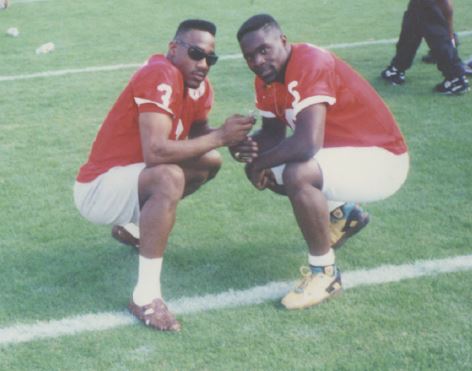
Excerpted from Chapter 91, No Place Like Nebraska: Anatomy of an Era, Vol. 2 by Paul Koch
Anatomy of an Era: Toby Wright, Part 2
Q: So you arrived on campus and Coach Darlington was your position coach, right? Tell me about your experience with George.
TW: (laughs) You know what, Coach Darlington –and I laugh about it now because I consider myself old, like a wise man right now- I just remember when I first got there Coach Darlington was trying to put me at corner(back). And I’m not a corner. They were already warning me about him because he was such an analytical coach, and I’m more like a reckless player. I’m like the live wire that they’ve always got to watch out for.
And you know what? Coach Darlington, I swear -and I’m talking about just until this last year- I would have bet my left arm on the fact that Coach Darlington did not like Toby Wright.
I remember him always sitting in his office. He used to call me in and have these personal one-on-one talks with me, trying to figure out who I was, what made me do the things I did. Every time he used to be sitting there eating crumb donuts (there used to be crumbs all over his shirt) and he’d be telling me, “Now, you’re a great athlete… but you’re too reckless. I don’t trust players like you, because what will happen –looking at the film- you missed a tackle here. And after you miss that tackle here, you’re like a reckless madman right now…” That’s what he said to me. And then he goes, “This is why you’re going to have a hard time playing for me.” And it was just a tough, tough thing, Paul.
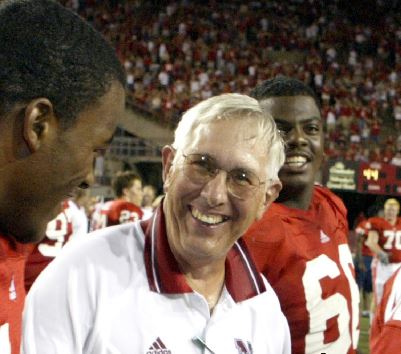
Coach George Darlington
And in junior college we didn’t have all the prolific plays and calls that Nebraska had, right? In junior college we had about 8 plays and I was just playing off of instinct, you know? And I go there to Nebraska and the playbook is crazy, it’s like an abstract thing to me.
Q: A lot of things swirling around in your head out there?
W: I remember one time my senior year Mike Minter comes in, and he’s a freshman and he was All-Everything in Oklahoma. His forty time… he ran a 4.3 and I ran a 4.4 or something, you know? He was like a new model T and I was the old Model A. Well, he comes in and I remember in practice Coach Darlington -there was a certain thing he wanted done- and he had a real hard-on for me right then. It was an adjustment that had to do with the formation..and it wasn’t that I didn’t know it, it was that I didn’t move fast enough. And Coach Darlington told me, “Get out of here. If you’re gonna be like that you go to the showers.”
And I remember going to the sideline, and he’s actually pointing to me like, “You go to the showers!” And I remember sitting there, Paul, looking at this guy, and he’s walking over to me… and even Coach McBride is telling him, “That is enough.” You know what I mean? And it felt like that scene in ‘An Officer and a Gentleman.’ It was like he’s telling me, “Son, I told you to go. And you don’t want to listen.” And I said, ‘Coach, I want to be part of the team. I’ll get it right, Coach.’ And he was like, “No, you just need to go.” And I just yelled at him and told him, ‘I got no place else to go! I ain’t got no place else to go, Coach! I gotta be here. I can’t go. If I leave, this is over, and I’m not going to let you do this to me!’
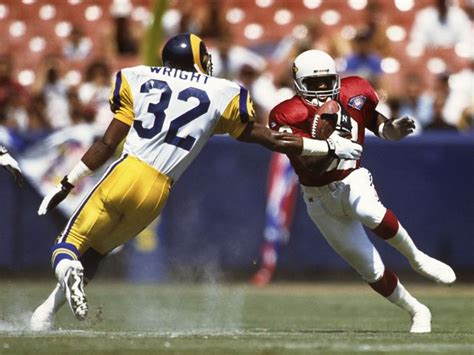
The stories are crazy, and throughout the whole year Coach Darlington was just on me. But when nut-cutting time came around -and I swear, when it was needed?- you’re talking about them letting the reins go? Then you’ll be calling Toby Wright, you know what I mean? We’re playing Colorado, we’re playing Oklahoma and we’re down: I was the person he would say, “Come on! We need you!” And I was thinking, ‘Damn, you don’t even like me!’ But that was at that time, you know?
Q: I understand….
TW: And I had a couple athletes that I trained -and Coach D. was at the University of San Diego recently and also coached some at Southeast Missouri with Coach Samuel- and he had a couple of players that I’d trained playing for him… and they said that he was always telling them how he loved me! (laughs)
All of a sudden, one day they put me on the phone with him and he’s like, “Hey, Toby! Woo-hoooo!” And I had no problem (because we’re older now) and I understand what he was trying to get me to do. He went and told me, “I had to ride you the most because you had the most ability on the team. I had to ride you and ride you.” And at the end of the day, I can appreciate that.
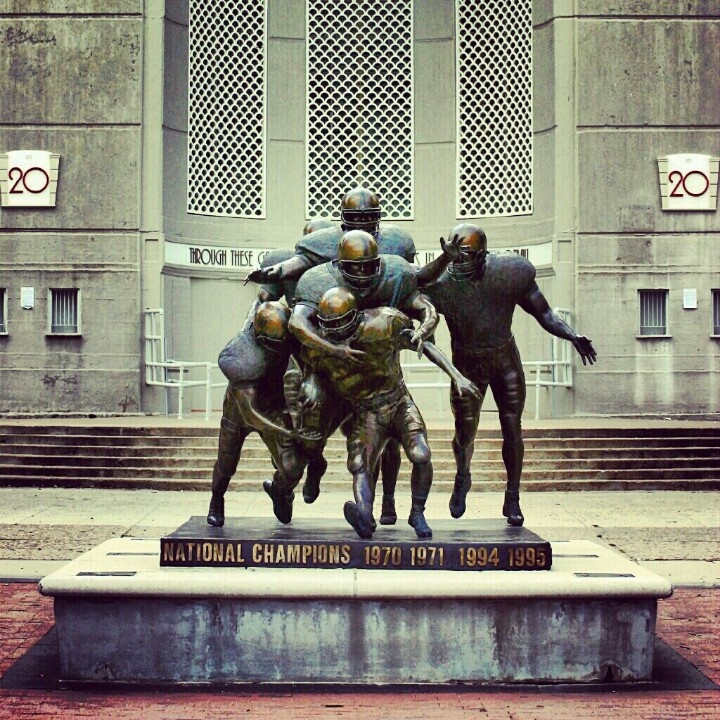
Q: Funny how time erases old wounds, huh?
TW: (laughs) And I came to find out, even Mike Minter… at the last game of the season I find out he’s my cousin, did you know that?
And we were rivals. We were rivals at the position and I rarely talked to him and glared at him, and you know how it goes. We went through all that stuff, because, “You’re the young Model T and I’m the old one, and your time will come when I’m leaving.” That’s another funny story, Paul, how my Dad was visiting and looked at him one time and told me, “That’s your cousin.”
Q: Tell me about it…
TW: What happened was, during the season Coach Darlington was switching me and Mike off, and I’d get really steamed and mad. I wanted to play every down. I mean every down.
And what happened was, I made a hit on Kordell Stewart on the sideline which was kind of close to being a late hit out of bounds. (And we didn’t get flagged for it, Paul, but I know Coach Darlington was pissed off at me.) He told me, “There you go, being reckless again.” And I go, ‘Hey, I didn’t even get a penalty for it.’ So I was taken out.
Then something happened and Coach Osborne looked over at Coach McBride on the sidelines and said, “Where’s Toby?!” And I’m standing right next to Coach McBride and he goes, “Get back in there!” So I’m like, ‘Okay. Beautiful!’ And then I see Coach McBride and Coach Darlington going back and forth… and then he sends Mike Minter in. I’m like, ‘Are you crazy!? I am not getting out of the game right now!’ So me and Mike kind of get into it right out there on the field. They had to almost call a timeout, you know? Guess who got the brunt of that one?
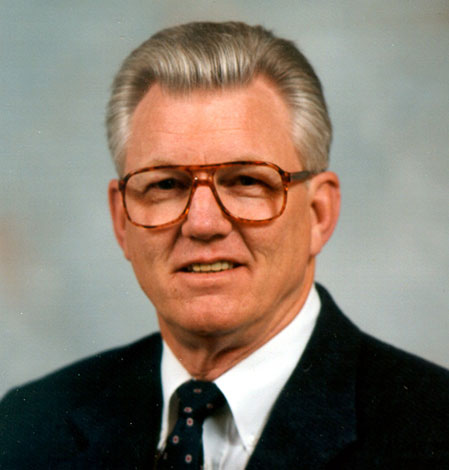
Q: I’m guessing it was you…(laughs)
TW: And Mike Minter, he’s only trying to do what the coaches are telling him to do. And the coach is trying to push him in there, of course, because he has like three more years, you know? So I come out and they call timeout, and Coach is just ripping me to pieces.
So at halftime I’m sitting there -and I remember leaning over to Mike Minter- I told him, I said, ‘After the season, you know… I’m going to kick your ass. We’re gonna deal with this after the season. But I’m not going to mess with you now, don’t worry about it.’ We made it official that we were going to have it out after the season. (And this was like the third game of the year or whatever it was, I forget)
So we go the whole year and are working through things as a team and I’m talking to Mike Minter; we just know we’re going to address things in that fashion, right? Well, we’re playing Oklahoma (and my Dad is from Oklahoma. Born and raised in Lawton, Oklahoma) and I had like an interception and like 8 tackles, I had a pretty good game. And I bring my Dad into the locker room after the game and I’m introducing my Dad to everybody, going from locker to locker: ‘This is my Dad. This is my Dad.’ and I get to Mike Minter’s and I didn’t even bother to introduce him: I just skipped to the next locker.
So when that happened my Dad kind of looked at him and kept going. So later on I’m sitting there in my jockstrap and my Dad is still looking over at Mike Minter. And I go, ‘Why are you looking at him over there like that?’ And it’s the last game of the season, you know, and I’m already going, ‘I’m gonna get him anyway.’
Now listen to this, Paul: my Dad turns to Mike and says, “Hey boy, what’s your momma’s name?” And Mike looks up to him and says something like, “Ophelia” or something like that, and my Dad turns to me and says, “Boy, that’s your cousin.” And I’m looking at him and am like, ‘No way!’ (exasperated) And I look at my Daddy and I tell him, ‘No way! I was gonna tear his ass apart, Dad.’ And he was like, “No boy, that’s your cousin.” And needless to say, me and Mike became real good friends. And we talked after that and everything was good and he had a stellar career. He was my Dad’s cousin. Incredible.
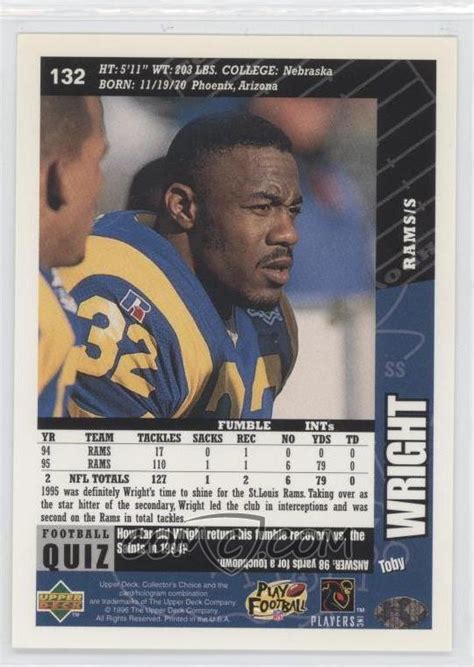
Q: Amazing, Toby! (laughs) And just so you know, you’re not the first guy who’s told me about butting heads with Coach Darlington. So was there anyone behind the scenes who made a lasting impact on the teams you played on?
TW: You know what, everybody was so close, like George Sullivan and Doak Ostergard. Doak has no idea what he did for me. I used to come into the training room and was all beat up and everything else. He wasn’t like the trainers in the pros; I ended up confiding in him and talking to him about life and everything else. Doak was like the greatest to me. We talk now. Coach didn’t like us in the training room because we were always hurt. And Sully was incredible, too. He was ‘old school.’ You could be bleeding and he’d be like, ‘Ahh, just put some ice on it.”
Q: Did you ever fall victim to a slap on the back of the head from Sully for wearing a cap while eating at the training table?
TW: Oh yeah! Of course, of course! (laughs) I was one of those people! And do you know who really saved my life? Coach (Charlie) McBride really saved my life, because behind Coach Darlington and getting ripped in practice I’m walking around like a bent banana, you know? And I remember passing by Coach McBride’s office on the way down the hall and he’d be like, “Hey shithead, come back in here!” And he told me, “I don’t care what you do, you keep flying around and you’re gonna play here.” He said, “I brought you here. We want you here. You keep flying around, Toby. Coach Darlington says you have a hard time with the plays -and guess what, if you don’t learn the plays I’ll be the first one to get you out of here- but you keep flying around and you’re going to play here.”
Q: “Hey shithead”, huh? (laughs)
TW: Yes, and I just saw Coach McBride last month. We see each other all the time.
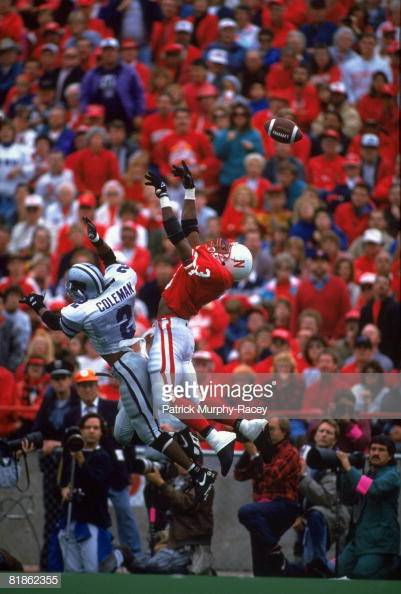
Toby Wright in action vs Kansas State’s Andre Coleman, 1993 (Photo by Patrick Murphy-Racey/Sports Illustrated/Getty Images)
Q: Do you have a most memorable game, Toby?
TW: I think Colorado was a big game. I remember playing a game with a full-fledged concussion and didn’t know where I was, but I wouldn’t come out of the game. That’s the closest thing, in my interpretation, of being in war and getting hit with shrapnel or something. It was something else. We’re in a nut-cutting time and Rashan Salaam is already having a good day on us, and I made a hit on the tight end -and he’s a brick house- and I’m in the huddle and I can’t see anything. And they’re in the huddle telling me, “Get out of the game!” And I’m like, ‘No! I’m not!’ And I remember John Reece lining me up. I’m just standing there like a zombie, and I remember getting in on a tackle or two, but I can’t see anything. It’s like that movie Black Hawk Down and I’m in the middle of battle and can’t see nothing: ‘Let’s just go.’ That’s what I miss, big time.
Q: I have to ask you about this -and it may be a point of contention- but it’s Kansas in ’93 and it’s the last play of the game, and somebody said you dropped off into the wrong coverage and left a guy wide open while they tried for the two-point conversion to beat us. Do you remember that?
TW: I cannot believe they are blaming me for that, Paul! (laughs) Hey, it was my tip that hit the ball. I tipped it. You’ve got to look at that play, Paul. I tipped it. Hey, that was probably John Reece saying that. (laughing)
Q: The story goes that some other guy was wide open but the quarterback didn’t see him. I figured that would have been one of those “Oh shit!” moments.
TW: That was one. (laughing ) That was one.
Q: Sometimes it’s not just a matter of being good, it’s a matter of being lucky, too?
TW: Oh, tell me about it.
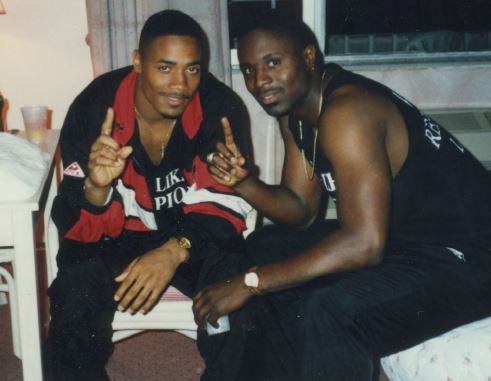
Q: Well, I want to wrap up and ask if you had any memorable practice occasions?
TW: Oh yeah. I remember when we were doing our usual 9-on-7, ten plays where we went all-out, live. It was at the three yard line and, of course, they had Cory ‘Rockhead’ Schlesinger, and we had to buckle up our chinstraps for him. And we had Ramaekers -and he kept screwing up or something, and they scored on us like three times- and I remember Coach McBride walked over and he kicked Ramaekers or something. He ripped into Ramaekers and he made him take off his blackshirt and he looked at us and said, “I don’t give a hell! I’ll get rid of all you guys’ Blackshirts!” And we’re standing in the huddle and Ramaekers is the only one without a blackshirt, and we’re all crying over him like a bunch of kids who got sent to their room, “You better get it together, man!” And it really defined who we were. We really went crazy after that, big time.
Q: Any memorable off-field stuff with the guys?
TW: Oh my goodness, I remember being in the locker room and having a break-dancing contest. They were thinking I’m from Arizona and all we have is rattlesnakes and stuff in Arizona, but all of a sudden I’m in my shoulder pads and all doing backspins and spinning all over like a top in the locker room. It was crazy, because everybody was looking at these guys: this guy’s from New York, this guy’s from California, and we’d just sit around there and break-dance all day.
Q: I’d be remiss to ask, what was it like being a black player at Nebraska? Were there any uncomfortable or uneasy times for you?
TW: Well, I’m from Arizona and even now racism is out there. And when I was back there I went to certain parties, and if they didn’t know I was a player it was different. They were vanilla and they treated me a little indifferently and were a bit rude -and that’s how society is- but when they found out I was a Cornhusker? It was a bit disheartening to see some of the people try to act nice to you after they figured out who you were and what you do. I always made it a point to let them know that I recognized that, and that it was terrible.
I was a psychology major and I’d sit in class -and to meet somebody from Wahoo, Nebraska or Waterloo, Nebraska?- the only info about a black person was what they’d get from TV, you know? But it was fun for me because I’d be open. I’d be like, ‘Oh, you wanna feel my hair? This is what a black person’s hair feels like.’ (laughs) It was a trip and was fun playing ball there. It was nice. And of course you have your situations, but it was a nice time.

Available on Amazon.com
Q: What do you feel is the greatest lesson gained from the whole experience?
TW: Mine isn’t just one. It was all those principles they taught me apply to my life. I’m married and have kids, and I’m a Blackshirt for life. I try to follow the same creed, I try to walk around like I have stature and I’m trying to uphold something. We were taught to stand up for what it is. When Coach took away Ramaekers’ Blackshirt we all stood in pain, because he lost his Blackshirt. When he took it away it was like he took all of ours’ away because of that bond, that brotherhood.
Q: The Scarlet Brotherhood, huh? Any guys you were really close with? Friendships lasting to this very day?
TW: There are a lot of guys, Paul. And you know what, me and Lawrence Phillips were extremely close. We were in St. Louis together, too, for the Rams. He’s been out to Phoenix and knows my family. Oh yeah, we’ve got some moments together.
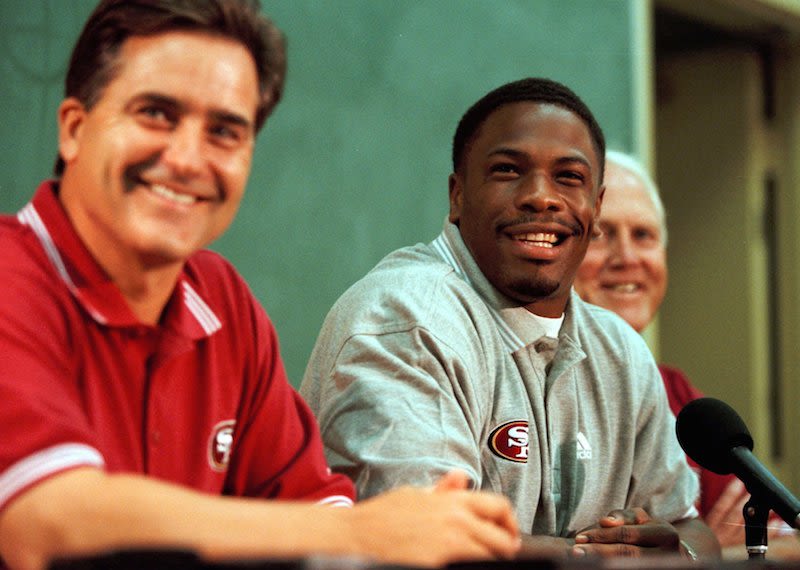
And on the other side of that, you know what? I would have to say that he is the most misunderstood man I’ve ever met in my life. Because Lawrence -he had childhood issues, of course- and if you were to sit down with him and converse you’d never know this was the Lawrence Phillips that everybody talked about, because he was such a great guy. And of course, you couldn’t get him mad, but he was such a great guy. It was just incredible. Like I said, he knows I love him. If he needed me I’m always there for whatever the situation. That’s my guy. I have to write him again sometime soon.
And there’s another thing: I have never been on the same football field and played with another running back who was as passionate. And I’ve played against a whole lot of them, but the way he ran the ball? The way that he approached the game with the ball? That was the way I played defense. He was incredible. All the guys were.
End conversation.
“Playing with passion.” How many times have we heard that trite line from a TV talking head? Countless, right? But they wouldn’t bring it up if there wasn’t at least an iota of truth to it, would they now? To this day I can sense that energy and enthusiasm and animation in Toby’s voice, his intents and mannerisms and inflections bringing the words home much like his brain-jarring tackles did over a decade ago. Oh, the poor fools who attempted a crossing route. May God bless their weary souls.
His interview brought to the fore, in my mind, two main concepts: brotherhood and emotional leadership. In addressing brotherhood there was the, “When Coach took away Ramaekers’ Blackshirt we all stood in pain… When he took it away it was like he took all of ours’ away because of that bond, that brotherhood.” It was a great analogy of Toby’s to equate their child-like reaction to being disciplined, chastised, admonished, called out in public as a threat or sorts, and illuminates the coaching staff’s constant quest for perfection, for the benefits of intra-squad competition, for not becoming too fat and sassy, thinking your status couldn’t be thrown down from its elevated post. Respect and rewards were earned on this team, often at a heavy price. There was also his, “..everybody was so close,” which seemed to contradict his earlier mention of newcomer Mike Minter’s battle for playing time at Toby’s own expense, “We were rivals at the position and I rarely talked to him and glared at him, and you know how it goes.” These juxtaposed statements scream for further clarification, for a fleshing out, and what I’ve come up with is this: bonds were created for these Blackshirts because of the great importance given the becoming part of that elite group, an attainment of supreme status, as well as the team-wide goal of winning out and earning the elusive National Championship. This was the glue that held it all together. So then, what of the interpersonal issues and rifts and differences of opinion? Well, those things existed as well, especially brought on by their competition for more playing time. But only to a point. Such situations can and should be expected, because if a collection of players did not possess such a spunk and prevalence of competitive juices it wouldn’t have been much of a team in the first place now, would it?. In essence, the team goals over-ruled all else, holding them all together despite the tensions and friction.
I won’t attempt to expound further upon the multitude concepts of leadership here, but instead rely on the fact that we’ve continuously been exposed to thus far. Suffice to say, leadership comes in differing forms and in varying degrees. The concept was broached earlier (especially by Dr. Jack Stark), but I don’t recall Jack’s touching on that of ‘emotional leadership.’ This opened up a new frontier for me and set me back to giving it more consideration. Toby had mentioned, “..they called me the ‘emotional leader’.” He also brought up Lawrence Phillips’ emoting on the offensive side of the ball, as have others (see Joel Wilks’ chapter). Lance Gray and many more spoke of the ‘blood, sweat and tears,’ and Toby and Lawrence most assuredly supplied an emotional and inspirational boost because of their choking up before and during competition. At the risk of overt sappiness, it would be safe to say that the love of the game by a few passionate ‘crybabies‘ played a crucial role in the team psyches during the great 60 & 3 era.
Notable quote #2:
Toby Wright on his ‘passion play’: “I think the game of hitting just came with the passion. I got to the point where I was playing the game at such a passionate level. It was almost like a complete emotional rollercoaster for me.”
Copyright @ 2013 Thermopylae Press. All Rights Reserved.
Photo Credits : Unknown Original Sources/Updates Welcomed
Author assumes no responsibility for interviewee errors or misstatements of fact.